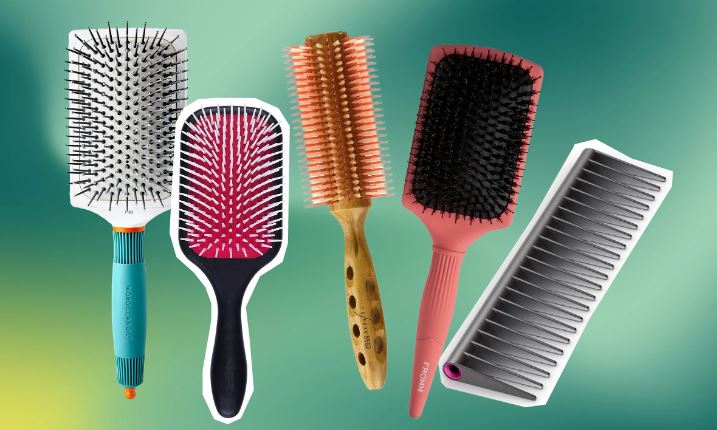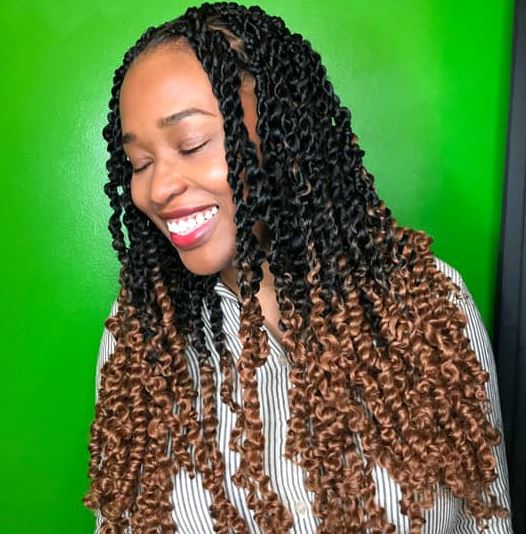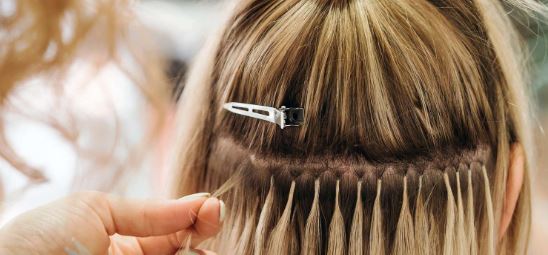Table of Contents
Having a head of healthy, lustrous hair not only boosts our confidence but also reflects our overall well-being.
To achieve hair that looks and feels its best, it’s important to tailor your hair care routine to your specific hair type.
This article will guide you through the process of caring for different hair types, from straight to coily, ensuring you have all the tips you need to maintain stunning locks.

Understanding Hair Types
Before delving into hair care specifics, it’s crucial to understand your hair type. Hair type is determined by factors such as texture, porosity, and scalp health.
By identifying your hair’s unique characteristics, you can make informed decisions about the products and practices that will yield the best results.
Different Hair Textures
Hair texture falls into four primary categories: straight, wavy, curly, and coily. Each type comes with its own set of challenges and beauties, demanding distinct care approaches to enhance its natural beauty.
Hair Porosity
Hair porosity refers to how well your hair can absorb and retain moisture. Understanding your hair’s porosity helps you choose the right products and treatments to keep it properly hydrated.
Scalp Health
A healthy scalp forms the foundation of beautiful hair. Regular cleansing, proper hydration, and a balanced diet contribute to scalp health, ensuring a conducive environment for hair growth.
Hair Care Tips for Straight Hair
Shampooing and Conditioning
For straight hair, a balance between cleanliness and moisture retention is key. Use a gentle shampoo to prevent stripping away natural oils and follow up with a lightweight conditioner to avoid weighing down your hair.
Styling Straight Hair
Straight hair is prone to appearing flat, so adding volume with styling techniques and suitable products can make a significant difference. Blow-drying with a round brush or using volumizing mousse can help create a fuller look.
Protecting from Heat
If you use heated styling tools, applying a heat protectant spray is essential to prevent damage. Opt for low to medium heat settings and limit heat exposure to maintain hair health.
Nurturing Wavy Hair
Cleansing Wavy Hair
Wavy hair tends to be drier, so opt for sulfate-free shampoos and conditioners that provide moisture without stripping natural oils. Consider co-washing (using conditioner as a cleanser) to retain essential oils.
Enhancing Natural Waves
To bring out the best in your waves, use a curl-enhancing cream or mousse while your hair is damp. Scrunch your hair gently to encourage wave formation and let it air dry or use a diffuser.
Taming Frizz
Frizz can be a common concern for wavy hair. Use anti-frizz serums or oils to tame flyaways, and avoid brushing your hair when it’s dry, as it can exacerbate frizz.
Embracing Curly Hair
Hydration and Moisture
Curly hair requires intense hydration to maintain its shape and minimize frizz. Use a deep conditioner regularly, and consider the “squish to condish” method to enhance moisture absorption.
Defining Curls
Curl-defining products like curl creams or gels can help shape and define your curls. Apply these products when your hair is wet to encourage proper curl formation.
Preventing Breakage
To prevent breakage, use a wide-tooth comb or your fingers to detangle your hair when it’s damp and coated with conditioner. Avoid using fine-tooth combs or brushing when dry.
Managing Coily Hair
Gentle Detangling
Coily hair is prone to tangling, so detangle it carefully using your fingers or a wide-tooth comb while it’s damp and coated with conditioner. Start from the ends and work your way up to the roots.
Deep Conditioning
Deep conditioning is crucial for coily hair to maintain moisture and prevent breakage. Use a deep conditioner with natural oils and ingredients that nourish and hydrate.
Promoting Growth
Regular scalp massages and protective styles like braids or twists can help stimulate hair growth for coily hair. Be gentle with your hair to avoid unnecessary stress on the strands.
Tips for All Hair Types
Regular Trimming
Trimming your hair every 6-8 weeks helps prevent split ends and maintains a healthy appearance. Regular trims also promote hair growth by removing damaged ends.
Balanced Diet and Hydration
A well-rounded diet rich in vitamins and minerals contributes to hair health. Drink plenty of water to stay hydrated, as this directly impacts the moisture levels in your hair.
Protection from Environmental Factors
UV rays, pollution, and harsh weather conditions can damage your hair. Use protective products like UV-blocking sprays and wear hats or scarves to shield your hair from external aggressors.
Conclusion
Caring for different hair types requires a personalized approach that takes into consideration factors like texture, porosity, and scalp health.
By understanding your hair’s unique characteristics, you can implement the right practices and use the appropriate products to ensure its health, beauty, and vitality.
FAQs
Is it okay to wash curly hair daily?
Washing curly hair daily can strip it of natural oils, leading to dryness and frizz. Aim to wash curly hair 2-3 times a week and use a sulfate-free, hydrating shampoo.
Can I straighten my wavy hair regularly?
Frequent heat styling can damage wavy hair over time. If you want to straighten your wavy hair, use a heat protectant, and limit the use of heated tools to prevent excessive damage.
How often should I deep condition coily hair?
Coily hair benefits from deep conditioning once a week or every two weeks. This helps maintain moisture levels and prevents the hair from becoming dry and brittle.
What’s the best way to prevent split ends?
Regular trims are essential to prevent split ends. Additionally, using a leave-in conditioner and avoiding excessive heat and styling can contribute to split end prevention.
Are natural remedies effective for all hair types?
Natural remedies can be effective for various hair types, but their results may vary. It’s important to choose remedies that suit your specific hair needs and preferences.




